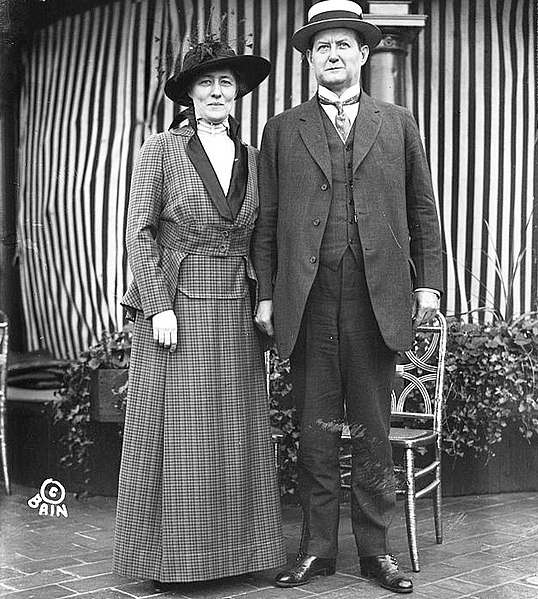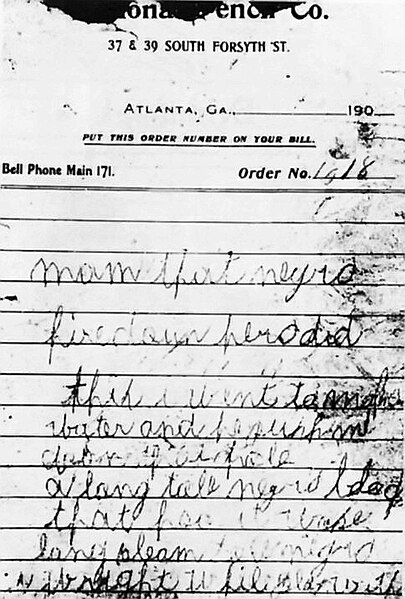John Marshall Slaton served two non-consecutive terms as the 60th Governor of Georgia. His political career was ended in 1915 after he commuted the death sentence of Atlanta factory boss Leo Frank, who had been convicted for the murder of a 13-year-old employee, Mary Phagan. Because of Slaton's law firm partnership with Frank's defense counsel, claims were made that Slaton's involvement raised a conflict of interest. Soon after Slaton's action, Frank was lynched. After Slaton's term as governor ended, he and his wife left the state for a decade. Slaton later served as president of the Georgia State Bar Association.
John M. Slaton
Slaton and his wife, Sarah Frances Grant
Georgia Historical Society marker for Governor John M. Slaton
Leo Max Frank was an American factory superintendent and lynching victim. He was convicted in 1913 of the murder of a 13-year-old employee, Mary Phagan, in Atlanta, Georgia. Frank's trial, conviction, and unsuccessful appeals attracted national attention. His kidnapping from prison and lynching became the focus of social, regional, political, and racial concerns, particularly regarding antisemitism. Modern researchers generally agree that Frank was wrongly convicted.
Frank, c. 1910–1915
Mary Phagan
One of the two murder notes found near the body
Jim Conley as shown in the August 1915 issue of Watson's Magazine







